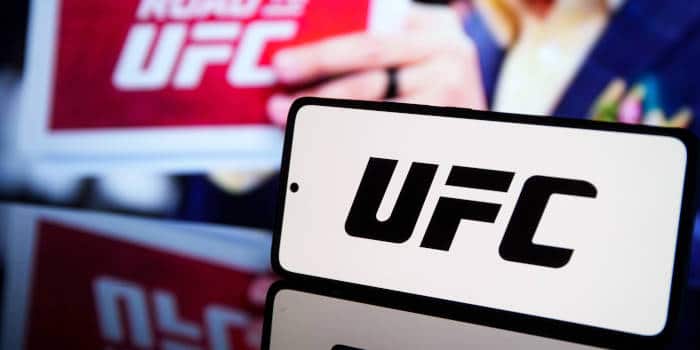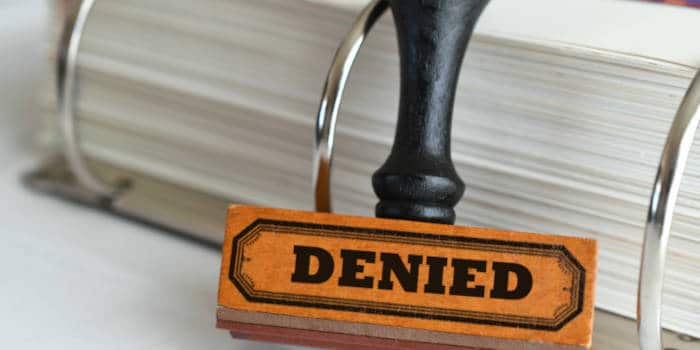- Casino
- By State
- Alabama
- Alaska
- Arizona
- Arkansas
- California
- Colorado
- Connecticut
- Delaware
- Georgia
- Florida
- Hawaii
- Idaho
- Illinois
- Indiana
- Iowa
- Kansas
- Kentucky
- Louisiana
- Maine
- Massachusetts
- Maryland
- Michigan
- Minnesota
- Mississippi
- Missouri
- Montana
- Nebraska
- Nevada
- New Hampshire
- New Jersey
- New Mexico
- New York
- North Carolina
- North Dakota
- Ohio
- Oklahoma
- Oregon
- Pennsylvania
- Rhode Island
- South Carolina
- South Dakota
- Tennessee
- Texas
- Utah
- Vermont
- Virginia
- Washington
- West Virginia
- Wisconsin
- Wyoming
- By State
- Slots
- Poker
- Sports
- Esports
Fact-checked by Mike Johnson
Elliott Rapaport: “Birches Health Works to Ensure Access to Responsible Gambling Tools is Front and Center”
Elliott Rapaport muses on the practical steps towards making sports betting safer, protecting athletes, and opening more treatment options to affected individuals

In our conversation with Birches Health CEO Elliott Rapaport we go through all the check boxes to better understand how bettors can stay safe. Rapaport argues that the important thing is to learn how to be smart about your wagers and bet responsibly. There are a number of ways to achieve this, but some practical considerations ought to also play a role in a bettor’s itinerary, he says.
Q: Millions of Americans can now legally wager on sports. With the upcoming NBA Finals what’s your advice to people who are planning to place their very first wager?
Just as one would want to do research and learn the basics of investing before opening a brokerage account, new bettors need to take time to learn how to bet smartly and responsibly before placing their first wager. We create and offer a full library of Responsible Gaming content on our platform, but here are some basic RG tips to get started:
- Create a betting budget and standard wager amount. Decide on an amount of money that you’d be comfortable losing entirely during the course of the NBA Finals. Your betting budget – known as a “bankroll” – should be one that has no impact on your financial wel-lbeing if it is lost. You’ll then need to pick a “unit” size, which is your standard bet amount. A good rule of thumb is that a unit should be 1-4% of your total bankroll. Keeping it in this range will help reduce the chances of losing the entire budget during the Finals, even if you go on a cold streak with your picks.
- Never chase your losses. Chasing losses is a concept that involves placing additional bets and/or wagering bigger amounts than your standard unit size in hopes of winning back what was lost before. This is incredibly risky, since your losses can compound rapidly and lead to losing a lot more than planned. Chasing losses is sadly a common first step down a path toward problem gambling.
- Avoid betting parlays. Parlays are very popular, but there’s a reason why sportsbooks love when their users bet them. With more legs added, the sportsbook’s advantage increases significantly, making it incredibly difficult to turn a profit if regularly betting them. People love the feeling of having the sports betting equivalent of a lottery ticket in their pocket, but the truth is that the odds of hitting one are even lower than you’d think given the odds offered.
- Set time and deposit limits. Many sportsbooks now allow users to set their own limits on deposits and time spent on their app or site. All bettors should use these tools to help keep their betting habits in check and avoid becoming preoccupied with sports betting.
- Don’t wager while drinking. Alcohol and drugs that can impair risk-assessment skills that are critical to betting responsibly. Even though drinking and betting are unfortunately common while watching live sports, it’s a dangerous mix and that can lead to significant negative results.
Q: Amid the expansion of legal betting, many fear about the detrimental impact of the activity on athletes and society. Do you think additional restrictions need to be enforced such as a nationwide ban on prop bets or tougher penalties for bettors who insult or threaten athletes?
There should undoubtedly be harsher penalties levied against any bettors who threaten athletes. With increasing frequency, professional and college athletes have reported the growing regularity of comments they hear from fans about bets, whether those be player props, standard spread and total wagers, or other markets. Too often, lines are being crossed by individuals who feel aggrieved when their bets lose. More needs to be done to protect players, coaches and officials from this kind of abuse, no matter the bet type involved.
Q: Licensed betting operators provide a range of responsible gambling tools. If you could expand that list, what tool or solution would you add in order to protect the consumers?
There have been significant upgrades and new product features in Responsible Gaming sections of sportsbook apps and sites unveiled over the past couple years, but there is still a lot that could be improved. Part of our focus at Birches Health is to ensure that treatment options are readily available should they be needed. One of our north stars as a company is increasing access to care. So we believe that an implementable solution (that we’re already working on with operator partners) is to ensure that access to RG resources is no longer multiple clicks away but is now as close to front-and-center as possible, even during onboarding.
Q: In your opinion, what is the best way to keep sports betting an entertainment activity?
One potential step could be the idea of mandatory problem gambling onboarding before a user places their first bet on a sportsbook platform. In the UK, affordability checks help ensure that bettors can actually afford to lose what they’re risking. While we’re likely significant time away from that step, it wouldn’t surprise me if similar methods were eventually enacted in the U.S. given what we’ve seen already in terms of the rising rates of problem gambling.
Q: Can you suggest tips that bettors can use to prevent excessive wagering on the NBA Finals?
In addition to the five RG tips above, it’s important to never let the importance or notoriety of the sporting event impact your betting behaviors. Just because the stakes are higher for teams in the NBA Finals, bettors’ stakes – meaning wager amounts – should stay the same.
Q: How can a sports fan recognize that they are engaging in unhealthy betting?
As we’ve explored in detail on the Birches Blog, there are important warning signs to be aware of that can be indicators of a potential gambling problem. Those include:
Preoccupation or Obsession with Gambling – A very common sign of gambling addiction is an excessive preoccupation with betting-related activities. An individual suffering from this disorder will often think about gambling all or a majority of the time. If someone obsesses over gambling and finds themselves unable to stop doing it, that could be a warning sign of struggling with a gambling addiction.
Hiding or Lying about their Gambling – This can be another one of the most obvious signs of a gambling addiction. People with a gambling problem at times try to hide their habit from family and friends. They may be dishonest about where they’ve been, what they’ve been doing or how much they’ve lost gambling.
Continuing to Gamble Despite Consequences – The continued pursuit of gambling despite facing significant negative consequences is another telltale sign. This can include mounting debts, strained relationships, job loss, or legal issues.
Experiencing Withdrawal Symptoms When Not Gambling – Withdrawal symptoms are not limited to substance addictions like drugs or alcohol. They can also result from gambling addiction. An individual addicted to gambling who tries to cut down or quit can experience restlessness, irritability, anxiety or cravings. These can be so distressing that they drive the individual back to gambling to relieve them. Recognizing these withdrawal symptoms is key to identifying a gambling addiction.
Dysfunction in Daily Lives – A gambling addiction can often cause notable disruptions in daily life. It can manifest as neglected responsibilities at work or home, skipping social commitments or downturns in personal hygiene or health.
Defensive About Gambling – People dealing with a gambling addiction may become defensive about their gambling activities. They could get evasive when asked about their betting habits or become irritable when the topic is mentioned.
Stealing or Unlawful Behavior – In some severe cases, individuals may resort to stealing or engaging in unlawful activities to finance their gambling. Some have embezzled money from the workplace, borrowed excessive amounts from friends and family, or engaged in illegal activities to obtain funds. These actions not only perpetuate their addiction but also increase the chances of legal consequences.
Guilt or Remorse After Gambling – After gambling, individuals with an addiction may feel guilt and/or remorse. They may recognize the harm they are causing themselves and others close to them but find it difficult to break free from it. This can lead to a vicious cycle where they gamble to escape those feelings, which perpetuates the issue further.
Mood Swings – Mood swings are another sign of potential gambling addiction. As individuals go through the highs and lows of betting wins and losses, their emotional state can become unstable. Individuals may exhibit irritability, depression, anxiety, or even euphoria – depending on the results of their bets.
William Velichkov is a research-driven writer. His strengths lie in ensuring factual accuracy, vetting government documentation and reaching out to regulators and other officials. He is particularly fond of financial reporting, the sports betting industry, B2B partnerships and esports betting developments. William is a strong asset to the Gambling News team as he adds a bedrock to our reporting.
Must Read
Insider
May 15, 2025
Joshua Gamble: “Cross-sell is dead. What next?”
More Articles



Sports
July 11, 2025
DraftKings to Give Back Over $3M to Connecticut Users

Sports
July 10, 2025
NJ Bans Sportsbook Deals With Public Colleges















